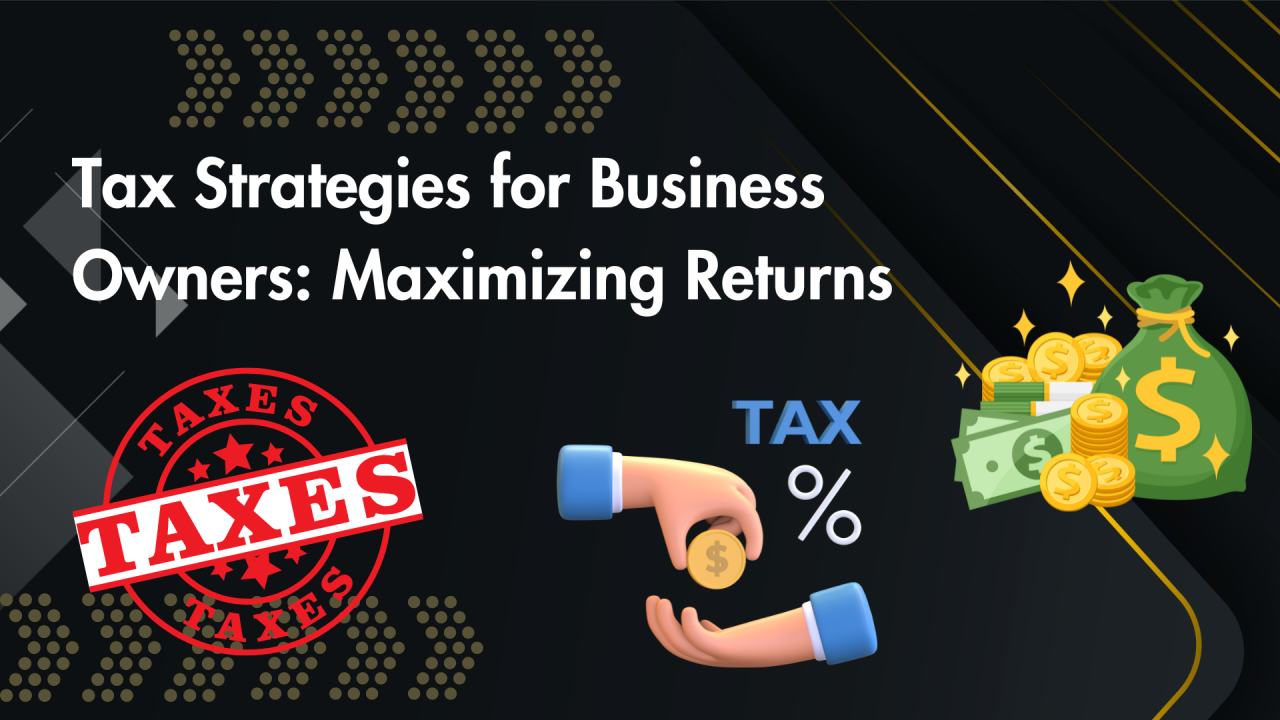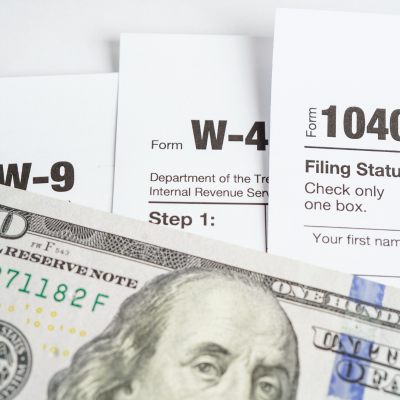
Starting a business is an exhilarating and adventurous venture, filled with endless possibilities. However, the financial responsibilities that accompany entrepreneurship can often feel overwhelming, particularly when it comes to taxes. As a small business owner, mastering the intricate landscape of tax regulations is not only essential but also instrumental in ensuring that your hard-earned profits remain securely in your pocket.
In this comprehensive article, we will delve deep into the world of tax strategies specifically tailored for small business owners. We will explore everything from the fundamental importance of taxes to the practical aspects of year-end and long-term planning. By providing detailed insights and actionable advice, we aim to equip you with the knowledge and tools necessary to navigate the complexities of taxation and optimize your business’s financial health.

What Are Tax Strategies?
Before delving into the specifics, let’s take a moment to clarify what tax strategies truly entail. Tax strategies encompass a set of deliberate plans and actions meticulously crafted to minimize the amount of taxable income, skillfully taking advantage of various legal deductions and credits available. By employing these strategies, individuals and businesses can effectively optimize their financial position within the bounds of the law, enabling them to keep more of what they earn. It is a proactive approach to managing taxes, ensuring that every opportunity to reduce tax burden is explored and implemented. With careful consideration and expert guidance, tax strategies can contribute to long-term financial success and stability.
The Foundation: Starting a Business to Pay Less Taxes
Embarking on your journey into tax strategies is a crucial step that should be taken right from the inception of your business. One of the key factors that can significantly impact your tax liability is setting up your business structure intelligently. It is often underestimated by many entrepreneurs, but choosing the right business entity, be it a sole proprietorship, partnership, LLC, or corporation, comes with its own set of tax implications that can greatly influence your financial outcomes.
To ensure you make the best decision for your business and financial goals, it is highly recommended to consult with a tax professional. Their expertise and guidance can provide you with valuable insights and help you navigate the intricate landscape of tax strategies, ensuring that you make informed choices that optimize your tax position and contribute to your long-term success.
Why Taxes Are Important for Small Business?
Proper tax planning goes beyond meeting your tax obligations. It can have a significant impact on your cash flow, profitability, and overall competitiveness in the market. By strategically managing your taxes, you can optimize your cash flow, minimize your tax liabilities, and uncover opportunities for savings and reinvestment.
On the other hand, ignoring tax considerations can have adverse effects on your business. It can result in unnecessary financial strain, missed opportunities for savings, and even legal consequences. By staying informed and proactive in your tax planning, you can navigate the complex tax landscape and position your business for long-term success.
In conclusion, understanding and embracing the potential of taxes as a financial tool is essential for small business owners. By incorporating tax planning into your overall business strategy, you can unlock opportunities for growth, improve your bottom line, and stay ahead of the competition.
What Are The Best Tax-Saving Strategies for Small Businesses?
Year-End Tax Strategies for Small Business
As the fiscal year draws to a close, savvy business owners strategically employ year-end tax strategies to optimize their financial position and minimize tax liabilities. One effective approach is accelerating expenses by proactively making necessary purchases or investments before year-end. By doing so, you can effectively reduce your taxable income for the current year, ultimately leading to potential tax savings. Consider upgrading essential equipment, stocking up on inventory to meet future demands, or settling outstanding bills to maximize deductions. Additionally, another strategy involves delaying income whenever possible, allowing you to shift it to the following tax year and potentially lower your overall tax burden. By carefully implementing these tactics, businesses can effectively manage their finances and position themselves for success in the upcoming year.
Tax Planning Strategies for Business Owners
Proactive tax planning throughout the year is of utmost importance for optimal financial management. It involves a comprehensive approach where you consistently review your financial statements, meticulously assess your tax liability, and strategically adjust your tax planning strategies accordingly.
To effectively maximize deductions, it is crucial to identify and include all eligible business expenses in your tax planning. These can range from office supplies and travel expenses to professional fees and more. By keeping detailed and accurate records, you can substantiate these deductions in case of an audit, ensuring compliance and peace of mind.
Furthermore, staying informed about any changes in tax laws is essential to adapt your tax planning strategies accordingly. Being aware of new regulations or updates can help you navigate potential impacts on your business and make informed decisions.
By implementing these proactive tax planning practices, you can optimize your financial position, minimize tax liability, and ensure long-term success for your business.
How To Implement Tax Strategies: Best Practices
How Do You Maximize After Tax Income?
Maximizing after-tax income requires a thoughtful approach that combines strategic planning and well-informed decision-making. One effective strategy to consider is reinvesting in your business to fuel its growth. Instead of solely relying on personal income, allocating a portion of your profits towards investments such as equipment upgrades, technology advancements, or employee training can provide you with various tax deductions.
Furthermore, exploring retirement plans and other tax-advantaged investment vehicles can offer additional benefits. For example, contributing to a Simplified Employee Pension (SEP) IRA or a solo 401(k) not only helps secure your financial future but also provides immediate tax advantages. These retirement plans allow you to save for retirement while reducing your taxable income, allowing you to potentially benefit from lower tax liabilities.
By implementing these strategies and taking advantage of tax deductions and retirement plans, you can maximize your after-tax income and establish a solid financial foundation for both your business and personal future.
How to Invest Business Profits to Avoid Taxes
Investing your business profits intelligently can contribute significantly to tax efficiency. By carefully analyzing and exploring opportunities for capitalizing on tax-free or tax-deferred investments, you can optimize your financial strategy. Consider placing excess funds in various tax-advantaged accounts, such as individual retirement accounts (IRAs) or 401(k) plans, to maximize tax benefits. Additionally, implementing tax-efficient investment strategies, such as investing in low-cost index funds or utilizing tax-loss harvesting techniques, can further enhance your overall tax savings.
However, while focusing on tax considerations is important, it is equally crucial to strike a balance between tax optimization and the overall financial health of your business. By taking a holistic approach and considering both aspects, you can ensure that your investment decisions align with your long-term goals and objectives, while minimizing the impact of taxes on your hard-earned money.
Conclusion: Navigating the Tax Landscape
Mastering tax strategies is not only essential but also a crucial aspect for small business owners aiming to maximize profits and minimize liabilities. By meticulously starting your business with tax considerations in mind and proactively understanding the importance of taxes, you can effectively implement both year-end and ongoing tax planning strategies that will optimize your financial position.
It is important to recognize that taxes play a significant role in the success of your business. By consulting with a knowledgeable tax professional, you can make informed decisions that will lead to reduced tax liability and increased financial security, ultimately benefiting your business in the long run.
As you navigate the ever-changing and complex tax landscape, it is imperative to stay informed about the latest tax regulations and updates. By staying proactive and continuously monitoring your tax situation, you can ensure compliance and take advantage of any tax-saving opportunities that may arise.
Remember, the key to thriving in the business world is to stay ahead of the game. By mastering tax strategies, you are equipping yourself with a powerful tool that will not only benefit your bottom line but also pave the way for long-term success. So, invest your time and effort into understanding and implementing effective tax planning strategies, and watch your business flourish like never before.
This blog is for informational purposes only. Always consult your tax professional regarding any and all tax deductions your business may or may not be eligible for.
About the Author, James Webster
James Webster, founder and Executive Chairman of ROK Financial has almost two decades of experience within the financial services industry. His passion for helping small business owners and his innovative way of thinking, has allowed him to run multiple successful businesses including National Business Capital & Services. Under the National name, the team was able to help secure over $1 Billion in financing for small businesses nationwide.